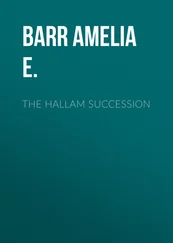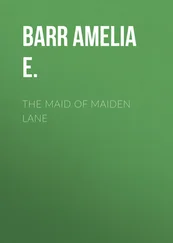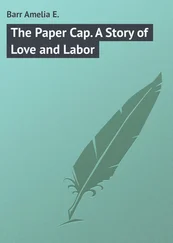Amelia Barr - The Lion's Whelp
Здесь есть возможность читать онлайн «Amelia Barr - The Lion's Whelp» — ознакомительный отрывок электронной книги совершенно бесплатно, а после прочтения отрывка купить полную версию. В некоторых случаях можно слушать аудио, скачать через торрент в формате fb2 и присутствует краткое содержание. ISBN: , Издательство: Иностранный паблик, Жанр: foreign_prose, на английском языке. Описание произведения, (предисловие) а так же отзывы посетителей доступны на портале библиотеки ЛибКат.
- Название:The Lion's Whelp
- Автор:
- Издательство:Иностранный паблик
- Жанр:
- Год:неизвестен
- ISBN:http://www.gutenberg.org/ebooks/50978
- Рейтинг книги:3 / 5. Голосов: 1
-
Избранное:Добавить в избранное
- Отзывы:
-
Ваша оценка:
- 60
- 1
- 2
- 3
- 4
- 5
The Lion's Whelp: краткое содержание, описание и аннотация
Предлагаем к чтению аннотацию, описание, краткое содержание или предисловие (зависит от того, что написал сам автор книги «The Lion's Whelp»). Если вы не нашли необходимую информацию о книге — напишите в комментариях, мы постараемся отыскать её.
The Lion's Whelp — читать онлайн ознакомительный отрывок
Ниже представлен текст книги, разбитый по страницам. Система сохранения места последней прочитанной страницы, позволяет с удобством читать онлайн бесплатно книгу «The Lion's Whelp», без необходимости каждый раз заново искать на чём Вы остановились. Поставьте закладку, и сможете в любой момент перейти на страницу, на которой закончили чтение.
Интервал:
Закладка:
"She was very little in earnest, and had forgotten it but for my reminding."
"She is much changed."
"It would be strange indeed if she was not changed. Before these troubles she was a girl living at her mother's knee, petted by her father, and the idol of her brothers. Two of her brothers fell fighting by the side of Prince Rupert, her mother wept herself into the grave for them, her father is still nursing the wound he got at Naseby, and her only brother, Stephen, is with Charles Stuart, wherever he may be. If such troubles did not change a girl, she would be hewn from the very rock of selfishness. Matilda is far from that. She loves with a whole heart, and will go all lengths to prove it. We do not know the new Matilda yet."
Jane would have made this remark still more positively, if she could have seen her friend as soon as Swaffham was left behind. She sat erect, lost in thought, and her eyes had a look in them full of anxiety and sorrow. The sadness of an immense disillusion was over her. But she belonged to that imperial race who never lose heart in any trouble. To the very last she must hope; to the very last believe even against hope and against reason. Her life had gone to ruin, but she trusted that some miracle would restore it. Not for long could any mood of despair subdue her; infallibly she must shake it away. For there was no egotism in her grief, she could suffer cheerfully with others; it was her isolation that hurt her. All her old friends had departed. The grave had some; others had taken different ways, or battle and exile had scattered them. By the side of her sick father she stood alone, feeling that even Jane – her familiar friend – doubted her, no longer took her at her word, called in question what she said, and held herself so far aloof that she could not reach her heart. Oppressed by such considerations, she felt like a child that suddenly realises it has lost its way and is left alone in a wilderness.
Nothing in her surroundings offered her any help. The road was flat and dreary; a wide level intersected with deep drains and "droves" – a poor, rough, moist land, whose horizon was only broken by the towers of Ely, vast and gray in the distance. Large iron gates admitted her to de Wick park, and she entered an avenue bordered with ash trees, veiled in mist, and spreading out on either hand into a green chase full of tame deer. The House – pieced on to the broad walls of an Augustine monastery – was overshadowed by ash trees. It was a quadrangular building of various dates, the gray walls rising from trim gardens with box-edged flower plots and clipped yew hedges. There was a large fish pond teeming with perch, and pike, and eels; and black colonies of rooks filled the surrounding trees, and perched on the roof of the mansion. An old-world sleepy air, lonely and apart and full of melancholy, pervaded the place.
But all these things were part and parcel of the word Home. Matilda regarded them not in particular, they only affected her unconsciously as the damp air or the gathering shadows of the evening did. The door stood open, and she passed without delay into the wide entrance hall. It was chill with the drifting fog, and dark with the coming night shadows; but there was a good fire of ash logs at the upper end, and she stood a few minutes before it, feeling a certain exhilaration in its pleasant warmth and leaping flame. Then she went leisurely up the broad stairway. It was of old oak with curiously carved balusters, surmounted by grotesque animal forms; but she did not notice these ugly creations as she climbed with graceful lassitude the dark steps, letting her silk robe trail and rustle behind her. Her hat, with its moist drooping feathers, was in her hand; her hair hung limply about her brow and face; she was the very picture of a beauty that had suffered the touch of adverse nature, and the depression of unsympathetic humanity.
But the moment she entered her own room she had the sense of covert and refreshment. Its dark splendour of oak and damask was brought out by the glow and flame of firelight and candle-light; and her maid came forward with that air of affectionate service, which in Matilda's present mood seemed of all things most grateful and pleasant. She put off her sense of alienation and unhappiness with her damp clothing, and as the comfort of renewal came to her outwardly, the inner woman also regained her authority; and the girl conscious of this potent personality, erected herself in its strength and individuality. She surveyed her freshly clad form in its gown of blue lutestring; she turned right and left to admire a fresh arrangement of her hair; she put around her neck, without pretense of secrecy or apology, the rosary of coral and gold; and admired the tint and shimmer of its beauty on her white throat. Then she asked —
"Was any stranger with the Earl at dinner, Delia?"
"My lady, he dined with Father Sacy alone."
"And pray what did they eat for dinner?"
"There was a sucking pig roasted with juniper wood and rosemary branches, and a jugged hare, and a pullet, and some clotted cream and a raspberry tart. All very good, my lady; will you please to eat something?"
"Yes. I will have some jugged hare, and some clotted cream, and a raspberry tart – and a glass of Spanish wine, Delia, and a pitcher of new milk. Have them served as soon as possible."
"In what room, my lady?"
"In what room is the Earl, my father, now sitting?"
"In the morning room."
"Then serve it in the morning room."
She took one comfortable glance at herself, and in the pleasure of its assurance went down-stairs. Her step was now firm and rapid, yet she paused a moment at the door of the room she wished to enter, and called up smiles to her face and a sort of cheerful bravado to her manner ere she lifted the steel hasp that admitted her. In a moment her quick eyes took a survey of its occupants. They were only two men – Earl de Wick, and his chaplain, Father Sacy. Both were reading; the Earl, Sir Philip Sidney's Arcadia ; the Chaplain, the Evening Service in the Book of Common Prayer. Neither of them noticed her entrance, and she went straight to her father's side, and covering the open page with her hand, said in a merry tone —
"Here is a noble knight dwelling in Arcadia, while the great Captain-General Cromwell – "
"The devil!"
"Is going up and down and to and fro in the land, seeking whom he may devour. I have been at Ely and at Swaffham, gathering what news I can, and I assure you, sir, there is none to our comfort."
"What have you heard? Anything about the Scots?"
"Cromwell is in Scotland. What do you expect from that news?"
"That Leslie will be his match."
"Then you will be disappointed. 'There is a tide in the affairs of men,' and this tide of Cromwell and the Commonwealth is going to sweep all royalty and all nobility into the deep sea."
"Well, then, I may as well return to my Arcadia and learn how to be rustical. We nobles may play at Canute if we like – but – but – "
"It is useless, while this man's star flames in the firmament. I hear that the Parliament rose bareheaded to receive him when he last entered the House. If he were king, they could have done no more. They have also given to him and his family a royal lodging in the Cockpit, and already the women are removed thither. If he conquers the Scotch army, what more can they offer him but the crown?"
"Those unlucky Stuarts! They will swallow up all England's chivalry. Oh, for one campaign with Queen Elizabeth at its head! She would send old Oliver with his Commonwealth to the bottomless pit, and order him to tell the devil that Elizabeth Tudor sent him there."
"The Stuarts are of God's anointing; and there are bad kings, and unlucky kings in all royal houses. I stood to-day where King John lay cursing and biting the rushes on the floor, because his barons had made themselves his over-kings."
Читать дальшеИнтервал:
Закладка:
Похожие книги на «The Lion's Whelp»
Представляем Вашему вниманию похожие книги на «The Lion's Whelp» списком для выбора. Мы отобрали схожую по названию и смыслу литературу в надежде предоставить читателям больше вариантов отыскать новые, интересные, ещё непрочитанные произведения.
Обсуждение, отзывы о книге «The Lion's Whelp» и просто собственные мнения читателей. Оставьте ваши комментарии, напишите, что Вы думаете о произведении, его смысле или главных героях. Укажите что конкретно понравилось, а что нет, и почему Вы так считаете.












